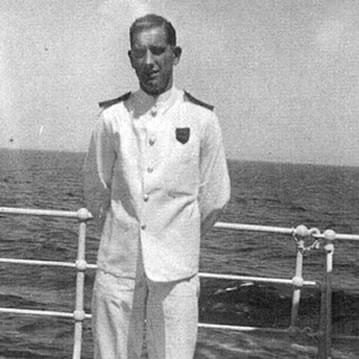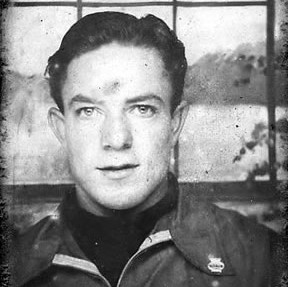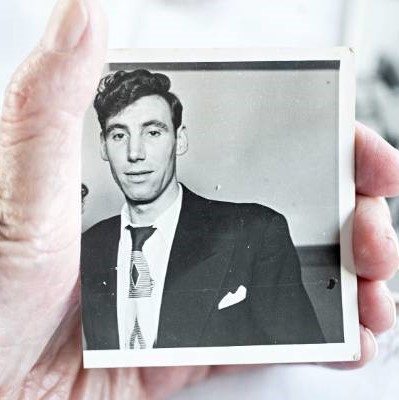Work on the ships was tough – but also full of adventure. Merchant seafarers often found themselves in the front lines of the war at sea. Many ships were torpedoed or bombed; survivors sometimes spent days or weeks in lifeboats before being rescued. More than 140 New Zealand merchant seafarers lost their lives, and a similar number were taken prisoner.
Life On Board
Key facts
Merchant sailors were not part of the armed forces, nor were they trained in combat, but worked in a range of roles: engineers, radio officers, pursers, and cooks etc.
"As a civilian industry, the Merchant Navy naturally contained employees who were younger or older than those in the armed forces, ranging in age from 14 to 75. Fifteen New Zealand teenagers are known to have lost their lives during the war, including Thomas Burke and Edward Walls, two 15-year-old deck boys on the Port Hunter, which was torpedoed off West Africa in 1942. These two teenagers were almost certainly the youngest New Zealanders killed in combat during the 20th century."
'No grave but the sea', URL: https://nzhistory.govt.nz/war/the-merchant-navy/no-grave-but-the-sea, (Ministry for Culture and Heritage), updated 17-May-2017
Living conditions on some merchant ships, like SS Marama the luxury cruise liner, were vastly different from their pre-war glamour. Food and accommodation varied depending on role and rank onboard. Merchant Navy hospital ships would end up transporting up to three times their maximum stated capacity at one time, with the wounded packed in - sometimes straight from the battle front.
SOUND
Life at sea in the Merchant Navy
Hear Les Watson talk about the food and accommodation aboard the Raranga.

" My meals were quite good; I ate what the officers ate. Because I did the officers' mess and the 'old man' [captain]."
"So I had pretty good food. But there was some terrible food went to the crew."
They used to, on the Raranga, when they used to come out after their watch, they looked like skeleton wrecks – the [firemen and] trimmers. Back-to-back they were, shovelling into fires either side. And they were just bones. Shocking conditions, but they survived. And yet the same ship was one of the few that maintained its speed across the Atlantic in all weathers, [even compared] to the modern ones. It was still more seaworthy."
Where was your accommodation?
"Mine was aft. The seamen were for'ard, and the firemen and that. We were aft with the galley staff. And actually speaking, in the Atlantic the waves come over and flooded our cabin, and I was on the top bunk. And I always remember this to this day, I am sitting there, and there was no way I was going to get out and paddle in the water"
"if the ship was sinking I was staying in the top bunk!"
SOUND
Looking back: Dan Bashall
"But I was lucky, I never had to get in the water. Some of us were lucky, weren't we?"

"Some of those trips in the Atlantic, oh my gosh. It was that rough, wasn't it? All those rafts, you'd come out the next morning, the rafts are all gone [washed overboard]. You know, they were held on with a pin, and you'd have a tomahawk, and you'd bang it, and it'd escape. Even that had broken away, with the rough weather. But I was lucky, I never had to get in the water. Some of us were lucky, weren't we? Because we all went through the other bit, there was always alarms and things like that, there was always that. But I still remember my mate's face, me and him down in the stokehold, and there's one God-almighty noise. It was a depth charge, but we didn't realise; a depth charge went off outside."
"And he looked at me; I can still see his face. 'Good God,' he said, 'I thought she was coming through.'"
You'd look at the coal dust was floating down off the rivets. You know, there's only the steel between you and the water, isn't there?"
WATCH
Teenager, torpedoed in the Mediterranean
Len Cook joined the British Merchant Navy in 1941, after the Royal Navy turned him down because he wasn't 18.

"For those that got through the war, I think they'd tell you it was a marvellous experience. You saw things you'd never see otherwise. Joined the Merchant Navy in 1941 as a steward. I was only 17...The Merchant Navy were desperate. The German's were sinking all the ships."
"You just hear a big explosion. The alarm goes off. You get up and you go to your lifeboat."
"You must remember we had 3,000 English soldiers onboard there and it's two o'clock in the morning and you're really only half awake."
